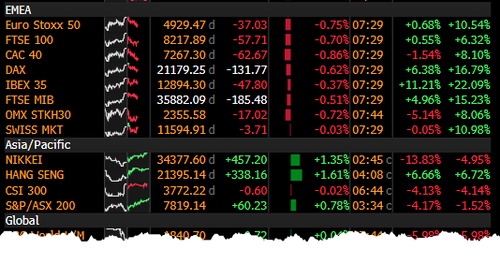Senior market analyst at FXTM, Lukman Otunuga, has stated that Nigeria’s heavy reliance on oil makes the United States’14 per cent tariff on Nigerian exports a potential threat to external revenue and a complicating factor for the 2025 budget planning. Otunuga noted that while the Nigerian government has opted not to retaliate, at least for now, analysts believe the decision may be a strategic move aimed at avoiding further escalation that could harm the country’s fragile economic recovery. He explained that Nigeria’s exports are largely insulated due to their composition, with over 90 per cent of outbound shipments to the U.
S. consisting of crude oil and gas. However, he warned that the broader risks posed by President Donald Trump’s trade war cast a shadow over emerging markets already contending with economic headwinds.

He said adding to the pressure is a sharp decline in global oil prices. Otunuga observed that both Brent and WTI benchmarks suffered their steepest weekly losses in over a year last week, driven by intensifying trade tensions and an unexpectedly large supply increase from OPEC+. “With crude oil prices down more than 13 per cent this month and year-to-date losses nearing 15 per cent Nigeria’s 2025 budget assumptions, based on $75 per barrel, are now in jeopardy,” he said.
He further warned that a sustained slump in oil revenues could worsen the outlook for the Nigerian naira, which has already depreciated by four per cent against the U.S. dollar this year, ranking it among the worst-performing emerging market currencies.
Otunuga said a continued erosion of foreign reserves could increase pressure on the local currency and fuel inflation. On the domestic economic front, Otunuga said there are tentative signs of relief with Nigeria expected to release its latest inflation data in mid-April. He said in February, headline inflation eased to 23.
2 per cent, the lowest since June 2023, while food inflation dropped to 23.5 per cent, a level not seen since September 2022. Otunuga cautioned that much of the recent moderation in inflation is likely due to technical adjustments, but a sustained decline could pave the way for monetary easing by the Central Bank of Nigeria in the second half of the year.
.
Business

U.S. tariffs threaten Nigeria’s revenue, complicate 2025 budgets

Senior market analyst at FXTM, Lukman Otunuga, has stated that Nigeria’s heavy reliance on oil makes the United States'14 per cent tariff on Nigerian exports a potential threat to external revenue and a complicating factor for the 2025 budget planning.The post U.S. tariffs threaten Nigeria’s revenue, complicate 2025 budgets appeared first on The Guardian Nigeria News - Nigeria and World News.















